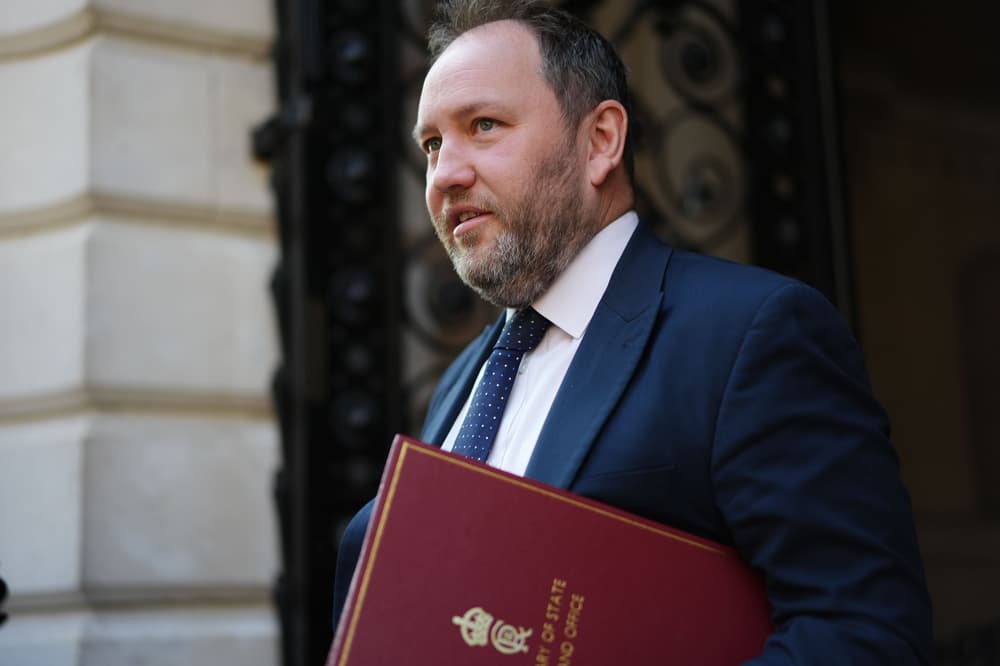The UK Government is actively working to reform what has been described as an “utterly broken” welfare system, following significant concessions made in Parliament earlier this week. Scottish Secretary Ian Murray emphasized the government’s commitment to these reforms during a visit to Belhaven Brewery in East Lothian on Thursday. His comments come in the wake of a tearful appearance by Chancellor Rachel Reeves in the House of Commons, signaling the emotional weight of the ongoing welfare debate.
Nearly a year after Labour’s general election victory, Murray highlighted the party’s achievements, stating, “We’ve had 30 Bills through Parliament, the most that have ever been passed in the history of a new government. We’ve given 200,000 Scots the biggest pay rise, we’ve been able to set up GB Energy, we’ve stabilized the economy.” These remarks underscore the government’s broader legislative agenda, which includes tackling the complexities of the welfare system.
Welfare System Under Scrutiny
On Tuesday, the government faced a critical moment as it was forced into a last-minute climbdown to ensure welfare legislation cleared its first parliamentary hurdle. Plans to restrict eligibility for the personal independence payment (Pip) were shelved, with any changes now contingent on a comprehensive review of the benefit. This decision is expected to increase pressure on other parts of the government’s finances.
Murray acknowledged the widespread consensus on the need for reform, stating, “Everybody agrees the welfare system needs reform and too many people are locked out of the workplace because of the way the welfare system works.” He noted that the Timms review would examine the Pip system, expressing confidence in the ongoing “journey” of reform.
A thousand people a day are going into personal independence payments, that’s 371,000 a year. That’s completely unsustainable.
Financial Implications and Political Reactions
The welfare reform efforts have sparked discussions about the financial implications for the UK government. The decision to delay changes to Pip eligibility highlights the delicate balance between fiscal responsibility and social welfare. Murray emphasized the unsustainability of the current system, stating, “This whole system is completely and utterly broken and it’s unsustainable and that’s what we’re trying to resolve.”
Inquiries about the potential impact of the Chancellor’s Budget choices on the devolved Scottish Government budget were met with assurances from Murray. He noted that the Spending Review had allocated an additional £9.1 billion to Edinburgh over two years, reinforcing the government’s commitment to supporting regional administrations.
Cabinet’s Determination and Market Reactions
The mood within the Cabinet remains one of determination, according to Murray, following Chancellor Reeves’ emotional display in the Commons. The Prime Minister’s support for her has been positively received by the markets, reflecting a degree of confidence in the government’s fiscal strategy.
Murray concluded by addressing the unpredictability of the economic landscape, stating, “The Budget will be set in October as it is in any budget. Of course, with things fluctuating so quickly, we wouldn’t speculate now what would happen then, because things can change so quickly.” He reassured that there would be no changes to the Scottish Government’s budget, maintaining a stance of stability amid uncertainty.
As the UK Government navigates the complexities of welfare reform, the coming months will be critical in shaping the future of social support systems. The ongoing reviews and legislative efforts will play a pivotal role in determining the sustainability and effectiveness of welfare provisions across the nation.
